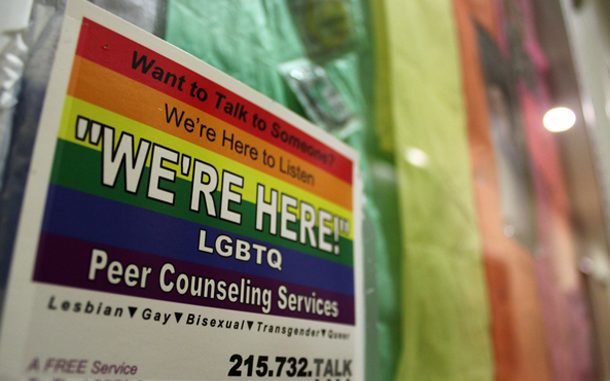
 An issue that shook the minds of most students from my suburban high school had me whaling with fury and downright confusion two weeks ago when Facebook statuses and Twitter feeds revealed Generation Y points against the Gay-Straight Alliance organization, an extracurricular club.
An issue that shook the minds of most students from my suburban high school had me whaling with fury and downright confusion two weeks ago when Facebook statuses and Twitter feeds revealed Generation Y points against the Gay-Straight Alliance organization, an extracurricular club.
I must have been living under a rock before I saw the bigoted messages, one being along the lines of, “I’m taking East Penn High School off my resume since it’s supporting such a club.” While I actually thought that my generation was supposed to be living in a revolution of acceptance and tolerance for all kinds of people, thoughts and preferences, those types of messages prove the exact opposite.
I must say, I did strike back with a Tweet or two and even deleted some “friends” caught in the act. I even attempted a conversation with one of the culprits, who is still considered a good friend, just trying to make sense of the issue.
And although I was careful with my words, I was able to realize that name-calling and ridicule doesn’t get anyone very far in such a controversial, passionate case coming from both sides of the argument. All I could do was sit back, shed a few tears, vent with a few phone calls to Dad and try to forget about it.
But that’s just it, I – a straight female living more than 100 miles away – couldn’t forget about it.
Thus, as my opinion began to flourish on the topic of GLBT acceptance and tolerance in society today, I made a comparison to racism, which has developed through similar roots.
When the majority of people feel threatened by minorities in society, it is common to try to keep everything the same and eliminate change. But, I think it is past time that society nips one of the last forms of bigotry in the bud, and starts providing basic fairness and rights to all citizens.
The Federal Equal Access Act, which passed in 1984, attempts to do just that, allowing students the right to form Gay-Straight Alliance clubs in public schools that allow other extracurricular clubs.
According to my hometown newspaper, the Patriot-News, which reported on the school board’s decision to admit the club, “Students requested the formation of the club to provide a safe school experience with an atmosphere of inclusion to each student.”
This Gay-Straight Alliance club will provide a secure outlet for students, both homosexual and heterosexual, an opportunity to talk about issues, voice their opinions and do civic work, just as the other numerous clubs made available at East Penn. It isn’t even asking for members of the area to accept people of the gay community, just for mere tolerance of a way of life in an area within a nation that boasts equal rights.
Although the club didn’t pass the first time around, board members surely kept in mind the legal suit that could come about, and reversed the decision.
When I compare the discrimination represented by some of the students from my high school to the experience of living in Philadelphia, with its own Gayborhood, and attending Temple, which provides a social norm of tolerance for diversity, I realized what a positive experience getting away can be.
Attending Temple has exposed me to a wide variety of people, some even setting new stereotypes, but ultimately grounding my knowledge. I have been given the opportunity to make my own decisions instead of relying on how and where I’ve been raised.
Most topics referring to prejudices never really meant anything to me until I came to Temple. Here, I have been given the opportunity to sit in extremely influential lectures, study abroad, work closely with professors and other students and experience a city that is well-known for its social diversity. The people I’ve met along the way, not one personality ever being the same, have shaped the person I am today mentally, emotionally and socially.
One professor in particular, Matt Wray, an author, researcher and teacher of the History and Significance of Race in America, recommended I read “The Cosmopolitan Canopy” by American sociologist Elijah Anderson.
Anderson makes a very clear point, referencing Philadelphia’s “cosmopolitan canopies,” or modern-day workplaces in particular, stating that, “through constant exposure, such environments can encourage common, everyday taken-for-granted civility toward others who are different from oneself.”
As living proof of this statement, I believe it to the fullest and encourage everyone, especially people from like-minded areas, to do the same.
Lauren Hertzler can be reached at lauren.hertzler@temple.edu.


“Whaling” with fury? Spellcheck isn’t everything, Ahab.